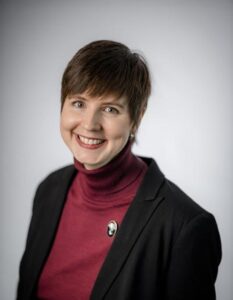Lore Knapp
Lore Knapp – Universität Bielefeld (uni-bielefeld.de)
Lore Knapp studied Modern German literature, Theater studies and Musicology at the Free University of Berlin as well as music education with a major in violoncello at the Berlin University of the Arts. She completed her doctoral studies at the Friedrich Schlegel Graduate School for Literary Studies at the Free University of Berlin and at Gonville and Caius College at the University of Cambridge. In March 2013 she received her PhD from Free University of Berlin. After teaching at the Free University of Berlin, the Humboldt University of Berlin and the University of Basel, Lore Knapp has been an Assistant Professor in literature at the University of Bielefeld since October 2014. In 2017 she was admitted to the Junges Kolleg of the North Rhine-Westphalian Academy of Sciences and Arts. In May 2021 she received a Venia Legendi in the subjects Modern German Literature and Comparative Literature. In December 2022 her book Empiricism and Aesthetics. On the German speaking reception of Hume, Hutcheson, Home and Burke in the 18th century will appear.
As part of the project Rethinking Enlightenment Lore Knapp is working on Locke’s Essay in German Aesthetics. The sensualist theory of knowledge and cognition that John Locke advocates in his Essay was built upon in German aesthetics. The epistemological preoccupation with the perception of the senses gave rose to categories like sentiment, affect, passion and feeling. There was to some extent a direct reception of Locke’s Essay, while additionally the Essay had an impact via empiricist aesthetics from Britain such as those of Francis Hutcheson, Edmund Burke, David Hume, Henry Home and Alexander Gerard, who were all translated into German and adopt basic thoughts from Locke. Lore Knapp intends to describe Locke’s concept and the epistemically grounded aesthetics of reception as a precursor to neuroscientific, cognitive, psychosomatic and evolutionary approaches in aesthetics. There will be three themes:
1. Physiological and association aesthetics
2. Locke in empirical aesthetics around 1900
3. Locke in the ethical weekly journal Der Zuschauer (The Spectator)
Konstantin Pollok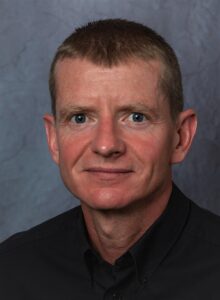
Konstantin Pollok is Professor of Philosophy and Head of the Kant-Forschungsstelle at the Johannes Gutenberg Universität Mainz. His research focuses on early modern philosophy with a special interest in Immanuel Kant’s philosophy.
Pollok is the author of Kant’s Theory of Normativity: Exploring the Space of Reason (CUP, 2017), Begründen und Rechtfertigen: Eine Untersuchung zum Verhältnis zwischen rationalen Erfordernissen und prävalenten Handlungsgründen (De Gruyter, 2009), and Kants Metaphysische Anfangsgründe der Naturwissenschaft: Ein kritischer Kommentar (Meiner, 2001). He has published critical editions of Kant’s Prolegomena (1783/2001) and Kant’s Metaphysische Anfangsgründe der Naturwissenschaft (1786/1997).
Pollok’s interest in the 18th c. reception of John Locke’s philosophy started with his eight-volume edition of Locke in Germany: Early German Translations of John Locke, 1709-61 (Thoemmes, 2004) .
As part of the project “Rethinking Enlightenment: The Reception of John Locke in Germany”, Pollok traces Locke’s influence on Kant’s critical philosophy which has been acknowledged in recent years but has not yet been comprehensively examined and received the monographic attention it undoubtedly deserves.
Thomas Ahnert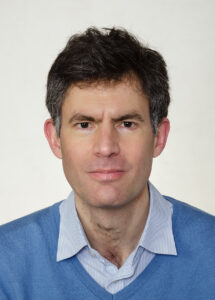
Thomas Ahnert is Professor of Intellectual History at the University of Edinburgh. He has published mainly on German and British, in particular Scottish, intellectual history from the seventeenth to the early nineteenth century. His first monograph was a study of the jurist and philosopher Christian Thomasius, Religion and the Origins of the German Enlightenment. Faith and the Reform of Learning in the Thought of Christian Thomasius (2006). This was followed in 2014 by a book on The Moral Culture of the Scottish Enlightenment, 1690 –1805. With the late Susan Manning he co-edited a volume of essays on Character, Self and Sociability in the Scottish Enlightenment (2011), which was a product of a collaborative research project, directed by Susan Manning and Nicholas Phillipson, on the Science of Man in the Scottish Enlightenment. He has also written on the reception of Newtonian thought in eighteenth-century Germany, and translated and edited several seventeenth-and early eighteenth-century texts on natural law, including Thomasius’s Institutes of Divine Jurisprudence, with Selections from Foundations of the Law of Nature and Nations (2011). He is particularly interested in processes of cultural and intellectual transmission and reception, the extent and nature of early modern secularisation, and in the intellectual history of European Enlightenment philosophy.
Theodor Berwe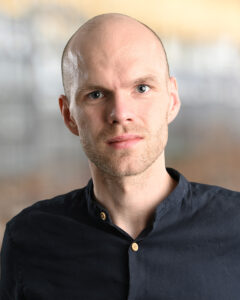
Theodor Berwe studied Philosophy, Linguistics at the Ruhr-University Bochum as well as Psychology at the University of Lüneburg. He is currently working on his PhD Thesis, which deals with the history of the genetic definition in early modern philosophy. His main research interests are epistemology and logic in Enlightenment philosophy as well as philosophy of geometry in the 18th century (esp. Lambert and Kant).
Contact: tberwe@uni-mainz.de
Michael Walschots 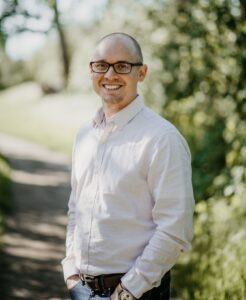
Michael Walschots is currently a Humboldt Postdoctoral Fellow in Philosophy at Martin Luther University, Halle-Wittenberg, Germany, where he’s working on a book project entitled: Kant and the British Moralists. Most generally speaking, Michael’s research focuses on issues in meta-ethics and moral psychology in eighteenth-century German and British philosophy, and his publications have explored these issues in the writings of Christian Wolff, Francis Hutcheson, Adam Smith, Alexander Baumgarten, and Immanuel Kant. Michael is the editor and translator of Kant’s Critique of Practical Reason: Background Source Materials (forthcoming, Cambridge University Press) as well as the co-editor of Christian Wolff’s ‘German Ethics’ (forthcoming, Oxford University Press). Michael will be joining the ‘Rethinking Enlightenment’ project in August of 2023, where he will be exploring the reception of Locke’s Two Treatises in eighteenth-century Germany, as well as the interpretation of Locke’s philosophy by ‘popular philosophers’ such as J.G.H. Feder, and G.A. Tittel.
Michael Jaworzyn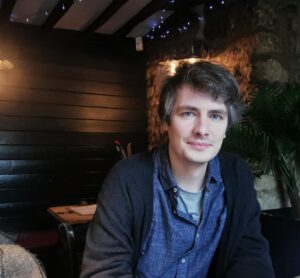
Lisa Niermann 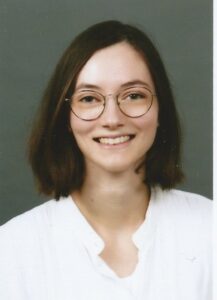
Lisa Niermann is the assistant on the project (March 2022 to June 2023) and a master’s student at the University of Bielefeld.
contact: lisa.niermann@uni-bielefeld.de
